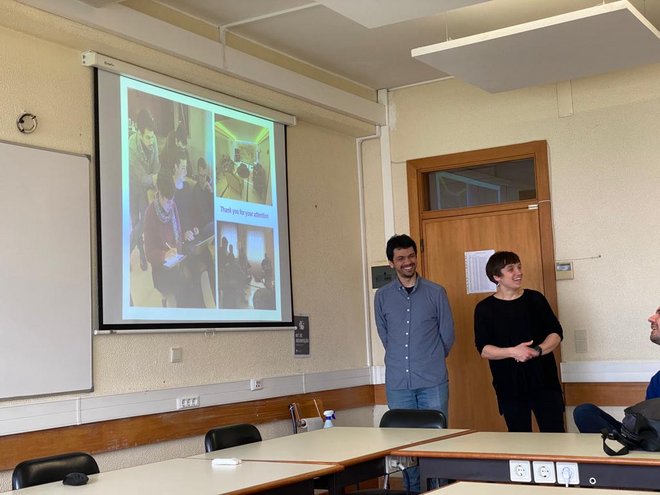Ph.D. Training Course 2023: Applied and Computational Mathematics in Engineering Application

Course 2023: Aveiro, Portugal | The course focus on: Inverse problems, Signal processing (analysis of monitoring data, pre‐processing of acquired data), Bayesian statistics, Machine learning methods based on reproducing kernels, Artificial neural networks, and deep learning.
Course Description
Given that new paradigms such as deep learning and explainable AI are increasingly permeating quantitative studies, parameter identification, and pattern recognition demands on PhD students are growing with the complexity of research topics and application requirements. Unfortunately, current developments in these fields are fast and cannot be easily incorporated into standard courses in Engineering or in individual courses by partner institutions. Therefore, there is a common need and high demand for specialized training courses on these topics.
To address these issues in the framework of the PARFORCE project, special training courses were offered At the University of Aveiro, Portugal by using a blended teaching approach with the ultimate goal to create online courses, while allowing to bundle resources and expertise to impart knowledge in a very comprehensive and goal‐oriented way and providing students with the opportunity to create their own networks in a European environment.
Conduction of the course
The course was divided into two parts: An online part which was held between (13st February – 24th February 2023) with two lectures per week, and a one-week hybrid part which took place (6th to 10th March, 2023), where selected number of students travel to Aveiro, Portugal and were taught in a classic presential environment while a second group follows the lecturers online. This allows using these courses as a testbed for a comparison between online and in-class training and teaching methods. To this end, the online part of the coursewas given by a combination of synchronous and asynchronous training to boost students’ background for the hybrid part which can then be efficiently used for the project work and discussion/reflection of knowledge. Furthermore, targeted participants composed of a combination of students from civil engineering with different specializations as well as students from Mathematics. This allows them to follow teaching activities and project work in form of interdisciplinary teams and to experience modern scientific knowledge in realistic training settings. Participating students worked together on realizing of civil engineering experiments in a virtual environments and presented their work at the end of the training. The course curriculum included training in Bayesian statistics, machine learning methods, and guest lectures from different engineering fields. The course emphasized hands-on experience, and participants worked in groups to apply the trained topics to engineering problems.







